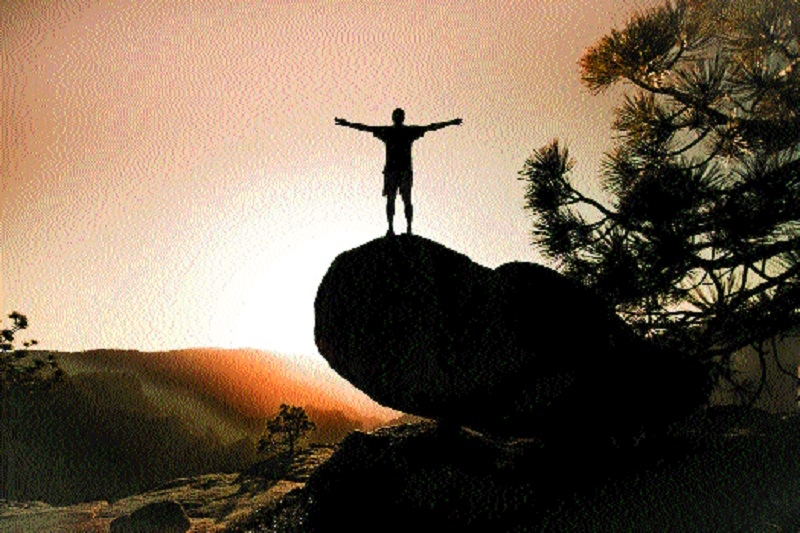Of ‘freedom’ as ideal idea
| Date :28-Jan-2020 |

By Vijay Phanshikar :
Freedom! There must not be any other word than ‘freedom’ that has been so variously interpreted and re-interpreted and defined and redefined. There must not be many words in human expression that have met with such a passionate response from members of global community – in all languages the world has ever known. Freedom! Poets, writers, essayists, treatise-definers, scientists, spiritualists, truth-seekers, and others with nomenclatures known and unknown – all of them have tried their hand and head and heart at the task of describing and defining what freedom should mean.

And each time such an expression has come about, the expressers as well as absorbers have engaged themselves fully in the exercise either of telling or listening to what freedom should and could mean to the humans. The effort to offer a facet of what freedom could be has not stopped only at the borders of humanity; it has gone far beyond, involving animals and flowers and planets and universe. If spiritualists have involved freedom of soul as part of the thought, scientists have engaged themselves in freedom from material or physical moorings that science often aims at breaking beyond! Such is the importance of the word ‘freedom’ – in all languages the human kind ever devised! Such is the place the thought and idea and ideal occupies in human life! But why? Why is this so?
There can be as many answers to this question as the number of people who live on Mother Earth or who ever lived here and who will later inhabit the place. And the reason is not far from us to realise. In fact, the thought of freedom is so dear and near to all of us that each one of us has his, or her, own way of looking at the idea called ‘freedom’. In fact, the Vedas emanated from the idea of freedom of soul when the rishis realised the concepts such as “Aham Brahmasmi” (I am the Brahma); “Tat Tvam Asi” (You are that!); “Sarvam Khalu Idam Brahma” (Everything is Brahma) …! The Vedas came from such inspirations that eventually were treated as enunciations of the divinely-inspired expression.
By the same token, each expansion of collective human knowledge is considered a foray into the zone of ‘freedom’ – free thought, free flow of human virtue and goodness, free will that separates the humans from other segments of living world. That is also the reason why every human individual has his or her own definition of freedom and its interpretation and ability to use the idea for what he or she thinks is ultimate goal of existence.
That is also the reason why there are so many literally and figuratively countless definitions of ‘freedom’ from even those early pages of human history lost to Time, lost in Time, and lost by Time. But it is quite fathomable that even in those early stages when the human race was in the throes of evolution – as per any theory, Darwinian or otherwise-the whole activity was woven around only one idea – freedom – from want, from hunger, from anger, from poverty, from pain, from privation …!
Those early pages are not known to us, but we need not mind missing those. For, our collective consciousness tells us that our ancestors of those very, very ancient times chased the idea of freedom – in the languages they knew then. This is certainly a very livening thought, a very liberating idea, a very elevating ideal …! It is not of any specific use telling and re-telling what one or two or three persons thought of freedom just because their expressions were of a fine variety.
Never mind crudeness as an undesirable dimension of human expression, the humans often grappled with the activity of defining what ‘freedom’ meant. This is, truly, a big solace, a big consolation – for multiple reasons. For, after all, don’t we belong to that genre – that race – that kind – that often thought of freedom as the most desirable of pre-conditions of living!!!